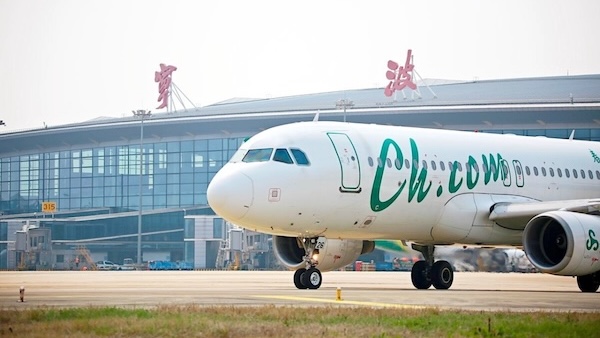Potential container surge shows reliability of Chinese factory sector
In light of recent announcements by the US and China regarding a temporary rollback of reciprocal tariffs, US retailers are rushing to secure Chinese-made products, and a surge in transpacific container traffic is widely expected in the coming weeks. This development provides a vivid showcase of China's integrated strengths in both manufacturing and logistics, which play a pivotal role in addressing the increasing international shipping demand and ensuring the stability of the global supply chain.
Given the upcoming uptick in container traffic, carriers have announced provisional transpacific peak season surcharges of $1,000 to $2,000 per 40-foot equivalent unit that would apply as early as Thursday, which will push rates to the US West Coast above $3,500, the South China Morning Post reported on Tuesday.
Container shipping is the linchpin of international commerce, carrying the lifeblood of the world economy. Following the release of the joint statement following the China-US Economic and Trade Meeting in Geneva, the immediate increase in container freight rates is a direct reflection of the market's expectations regarding the continuity of manufacturing links between the US and China.
American retailers' rush to lock in Chinese products, coupled with the rapid response of China's manufacturing sector, jointly confirm the close interdependence between the US and Chinese economies in the manufacturing field. For instance, an owner of a personal care products company in East China's Jiangsu Province noted that his American customers are two months behind in placing orders, and when the orders finally arrived, he had to push his partners to speed up production and shipments, Chinese news portal jiemian.com reported on Tuesday.
This phenomenon underscores the high degree of dependence of the US market on Chinese products, which have permeated every aspect of American daily life, from essential consumer goods to industrial products, and have become deeply integrated into the production systems of US companies. It also paints a telling picture of the efficiency and flexibility of China's manufacturing sector in responding to changes in global market demand.
The rapid response to fluctuating demand is facilitated by China's unparalleled industrial ecosystem. With its 41 major industrial categories, 207 intermediate categories and 666 minor categories, China is the only country in the world with all industrial categories in the United Nations Industrial Classification. This provides its companies with a unique advantage in resource integration. When confronted with a sudden increase in orders, factories can quickly mobilize various production factors within the country.
Moreover, China's outstanding performance in transportation capabilities provides robust support for the flexibility of its manufacturing sector, which is also a key factor in China's prominent position in global trade. China's infrastructure in ports, railways and highways ranks among the best in the world. Seven out of the world's top 10 ports are located in China. For instance, as the world's busiest container port, the port of Shanghai handled 51.51 million 20-foot equivalent units in 2024, the 15th year in a row that it held the top position by container throughput globally. The cargo throughput of Ningbo-Zhoushan Port in East China's Zhejiang Province exceeded 1.37 billion tons in 2024, ranking first globally for the 16th consecutive year, according to the Xinhua News Agency.
This physical advantage, when combined with an intelligent logistics network, creates spectacular efficiency in goods circulation. When faced with a wave of orders, companies can rely on a dense network of highways and railways for raw material delivery and use digital logistics platforms to optimize transportation routes in real time. This ability to precisely synchronize production cycles with logistics timelines forms the core advantage of China's manufacturing sector in the global supply chain and is also a crucial guarantee for the stable operation of the global supply chain.
The global supply chain is undergoing significant restructuring; however, the adaptability demonstrated by China's manufacturing sector has become so integral to global trade that it not only reinforces China's position in the global industrial chain but also provides a stable anchor for the world economy in uncertain times.

 Ningbo through global eyes
Ningbo through global eyes  A day as 'mayor of Cicheng ancient town'
A day as 'mayor of Cicheng ancient town'  Marina's tea journey in Ningbo
Marina's tea journey in Ningbo 


